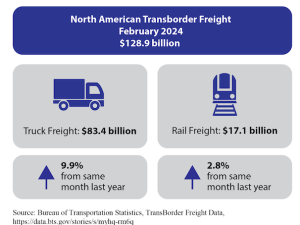'The NTSB Most Wanted List identifies a number of areas where the Board and ATA have a shared interest in improving highway safety,' said ATA President and CEO Bill Graves.
Graves specifically cited the Board's identification of the dangers of impaired and distracted driving, the need to repair and improve the nation's infrastructure and the benefits of active safety technologies as issues important to the trucking industry.
'ATA has long been an advocate of reducing impaired and distracted driving on our highways,' he said. 'Truck drivers are already subject to ATA-supported bans on texting and hand-held cell phone use, but ATA firmly believes these bans should be extended to drivers of all vehicles. Similarly, our industry is a leader in combating impaired driving, as seen in our early advocacy of mandatory drug and alcohol testing and remarkably low violation rates, particularly when compared to the rest of the motoring public. But we can always do better.
'Two areas where we can do better in fighting impaired driving are through the use of hair testing of regulated drivers to detect illegal drug use and in the creation of a clearinghouse to better track drivers' drug and alcohol test results,' Graves said.
Graves also echoed the NTSB's call for the need to do more to ensure our infrastructure is safe and efficient.
'Even though we just saw a highway bill signed into law, it was woefully underfunded and will do little to improve our infrastructure. Well-built and maintained roads are key to improving safety,' he said.
Finally, Graves said NTSB's endorsement of active safety technologies like lane departure warning systems, stability control, forward collision warning systems and adaptive cruise control were 'something ATA has voiced support of for years and a topic we hope lawmakers and regulators address soon.'








